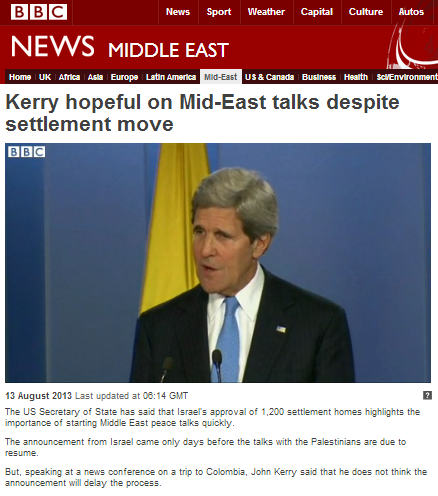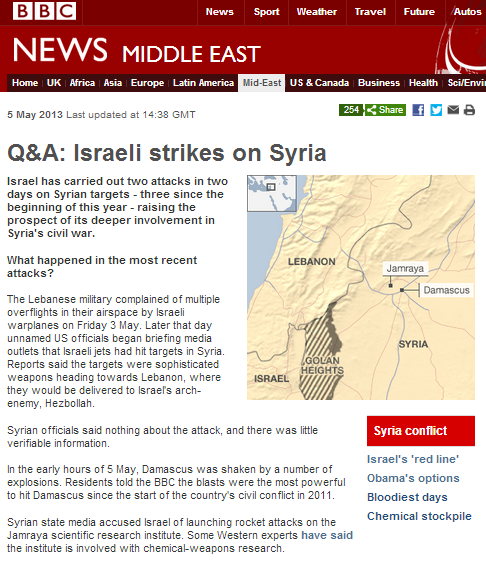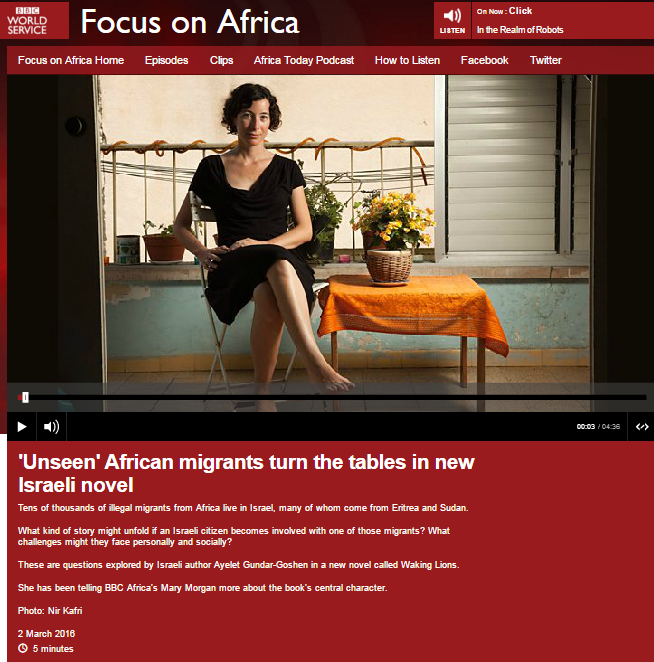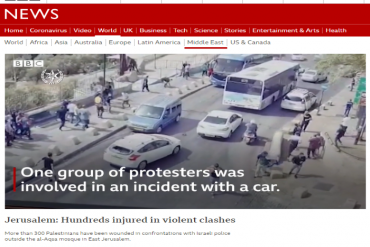On April 9th the BBC reported on statements made by the US Secretary of State during an interview with an American media outlet. As readers can gather from the punctuation used in the headline “Yemen crisis: Kerry warns Iran over Houthi rebel ‘support’“, the BBC is obviously not convinced by John Kerry’s assertion of Iranian backing for the Houthi militia in Yemen and the language used in the body of the article itself was equally vague.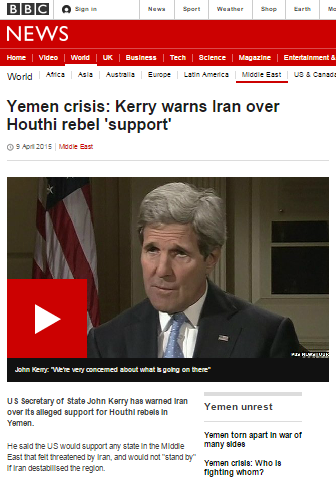
“US Secretary of State John Kerry has warned Iran over its alleged support for Houthi rebels in Yemen. […]
Iran has denied accusations it is providing military aid to the Houthis.”
Another article appearing on the BBC News website’s Middle East page on the same day under the title “Yemen crisis: Iran’s Khamenei condemns Saudi ‘genocide’” informed readers that:
“On Wednesday, the US warned Iran over its alleged support for the rebels. […]
The [Iranian] foreign ministry also summoned Saudi Arabia’s charge d’affaires in Tehran.
The state news agency, Irna, quoted the ministry as saying the envoy would be asked to explain “baseless accusations” made by a spokesman for the coalition.
On Wednesday night, Brig Gen Ahmed al-Assiri told a news conference that Iran had been training and equipping Houthi fighters, according to the Reuters news agency.
The US secretary of state also said that Iran’s support for the rebels was clear.”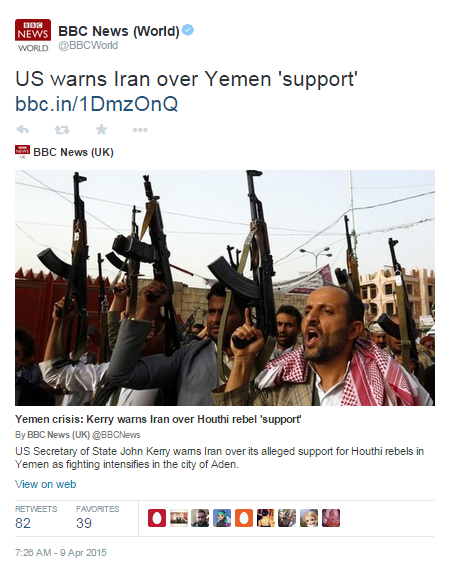
Of course Iranian support for the Houthis is not a new topic: it one that has been under discussion for quite some time and in particular since the Yemeni coastguard intercepted an Iranian ship carrying arms destined for the Houthis over two years ago. A more recent statement from an Iranian politician appeared to add credence to the claims long made in the Saudi media and – as the BBC itself reported in 2013 – by some in Yemen.
“Ali Reza Zakani, an MP, boasted that Sana’a was now the fourth Arab capital in Iranian hands – after Beirut (through Hizbollah), Damascus (through President Assad) and Baghdad (through Iraq’s democratically elected Shia-led government).”
The BBC, however, has apparently opted to remain on the fence and appears to have little journalistic curiosity or interest in either confirming or refuting the assertions of the US administration and others with regard to Iranian activities in Yemen.
It is difficult to see how the corporation intends to fulfil its remit of providing its funding public and wider audiences with a fact-based “understanding of international issues” relating to the conflict in Yemen in particular or the already under-reported issue of Iranian policy in the Middle East in general if it continues to make do with reporting based on the use of the word ‘alleged’.

